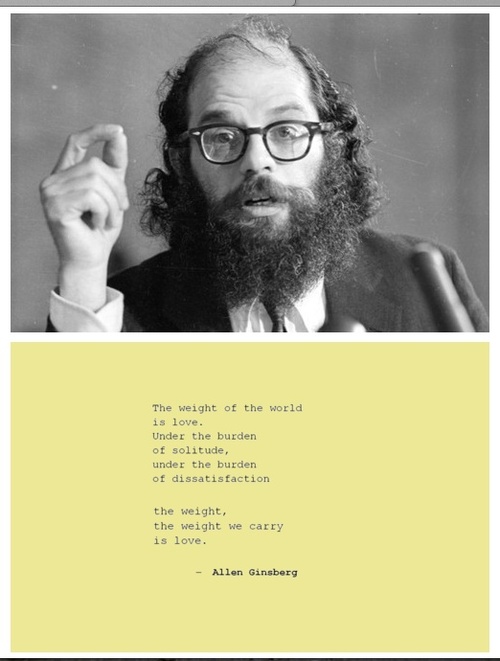suffering to love and a sufferless god
Hardly a night passed during my adolescence when I didn’t wake up—petrified, drenched in a cold sweat–convinced that God, because of some sin that I thought I committed, had returned from heaven and left me behind to a world that He’d soon push into an eternal lake of fire. One year, in high school, on the last day before Christmas break, my pastor came to the podium for morning announcements. “Look around, dear children,” he said, solemnly, holding his Bible and looking at as many of us in the eyes as he could. “Take this moment in,” he continued. “This may be the last time we will be gathered together on earth.”
Not your run-of-the-mill morning announcement, really.
To him, however, and to many in my religious community, God was something to be very afraid of.
God—the god I learned to imagine and, through that imagining, experience as a real, powerful presence in my life—created in me, and creates in many, unnecessary and unproductive suffering. It is for this reason that many, rightfully, bid God, and religion, adieu.
In college, when God unraveled—when the God of my youth seemed like an arbitrary act of mental gymnastics; like the CEO of the local fear factory; like a way to masturbate, emotionally—I came to the conclusion that God was real, but that suffering and God were antithetical to one another. God, I reasoned, had nothing to do with fear: God gave peace and love, not suffering and hell.
As a result, in graduate school, when I first dove into the wild, beautiful ocean of Christian spirituality, I had a hard time reconciling the mystic-speak about the positive relationship between suffering and love. A victim of his culture, I’d say about St. John of the Cross and his notion of the Dark Night. Filter her delirium, I thought of St. Therese of Lisieux, who wrote that suffering made her more loving.
Last Sunday night, seven of us gathered at a small Episcopal church in San Rafael as the sun’s decent colored the horizon with purples and pinks, as the church glowed in candle light, as soft winds beat against the roof. It was the fourth time we met for a group we’ve called Amare, which is Latin for “love,” in order to cultivate a sense of love within and around us. We let our imaginations play freely to the ambient sound of the secular, Icelandic band Sigur Ros; we sat in the “holy, animal silence of love, of one another,” as one of the members put it; I read poetic lines from Rumi and St. Thomas Aquinas and we pondered love which, as Thomas Merton wrote, “can only be kept by being given away” is, as Dr. King said, “the most durable power in the world” and is, in the existential psychologist Eric Fromm’s view, the underlying solution to the fundamental problem of human existence.
Once our final silence ended, we went upstairs to drink and discuss the service. During our chat, someone said something that I found compelling; that I’ve been thinking about ever since; that’s changing the way I understand what people like St. John and Therese wrote about the relationship between suffering and love. “Perhaps,” he said, “suffering can be a form of love if it increases one’s capacity to love.” “That,” he said later, “would mean that, when it comes to love, we need to make a distinction between productive and unproductive suffering.”
While, in a Nietzschean sense, God may be dead, most Americans still, in some capacity, believe there’s a divine, in my beloved little old Fieval’s words, “somewhere out there, beneath the pale moonlight.” And the God most Americans imagine is a thoroughly loving one. “For Americans today,” USA Weekend reported in 2010, “God, quite simply, is love.”[1] And indeed: studies indicate that nearly nine in ten Americans say that “love” is an accurate descriptor for God.[2] For many Americans, moreover, God is not just an arbitrary love-energy in the sky: God is also personally and interactionally loving, and love is a primary indicator of and method by which people come to experience God as personally and interactionally real in mind and body.[3]
The type of God that people imagine is important because it plays a major role in their psychological and social lives. Studies have demonstrated that, on the one hand, belief in a loving God can improve mental health, motivate one to act benevolently in the world, and is associated with inclusive politics. On the other hand, studies have demonstrated that belief in an unloving God can damage mental health and create a discriminatory politic.
How someone thinks about God, in other words, says a lot about how they think. And how someone thinks says a lot about how someone acts. Christopher Bader and Paul Froese, sociologists at Baylor, have argued, in their book America’s Four Gods, that God is like the ultimate voice in one’s head.
Thinking about a loving God is better than thinking about a damning God. But we should worry about what happens when people are thinking about a sufferless God; a God who doesn’t send a fire that burns.
The difference between productive and unproductive suffering, and that a loving God could create suffering if it increases one’s capacity to love, are important ideas for our divine imaginary. A God who only makes people feel good—who sends only goosebumps and giggles—is an impoverished god. A God who isn’t in our pangs of conscience—in the tired but dignified cry of the protestor demanding racial equality and in the impassable ears of the privileged that need to hear it; in the unsettling silence we swallow as we pass the homeless on our way home from work; in the waters moving through the divine imaginary, extinguishing the notion of hell—simply wouldn’t be a loving God.
Love necessitates productive suffering; it is a guidepost on the path to God.
Drowning God in a sufferless love, therefore, given the centrality of “God” to human behavior, can suffocate Her prophetic voice and undermine our capacity to create justice. We must be careful that our divine pendulum not swing too far.
[1] Cathy Lynn Grossman, “How Americans Imagine God,” USA Weekend, December 17-19, 2010, 6-7.
[2] Paul Froese and Christopher Bader, America’s Four Gods: What We Say about God—and What That Says about Us (New York: Oxford University Press, 2010), 15.
[3] Tanya Luhrmann, When God Talks Back: Understanding the American Evangelical Relationship with God (New York: Vintage, 2012), 132.




